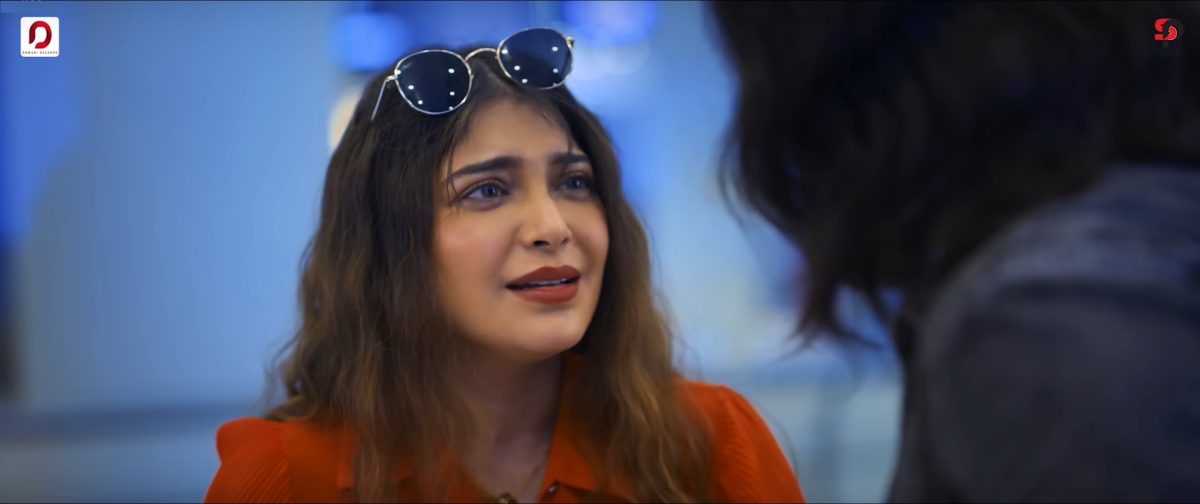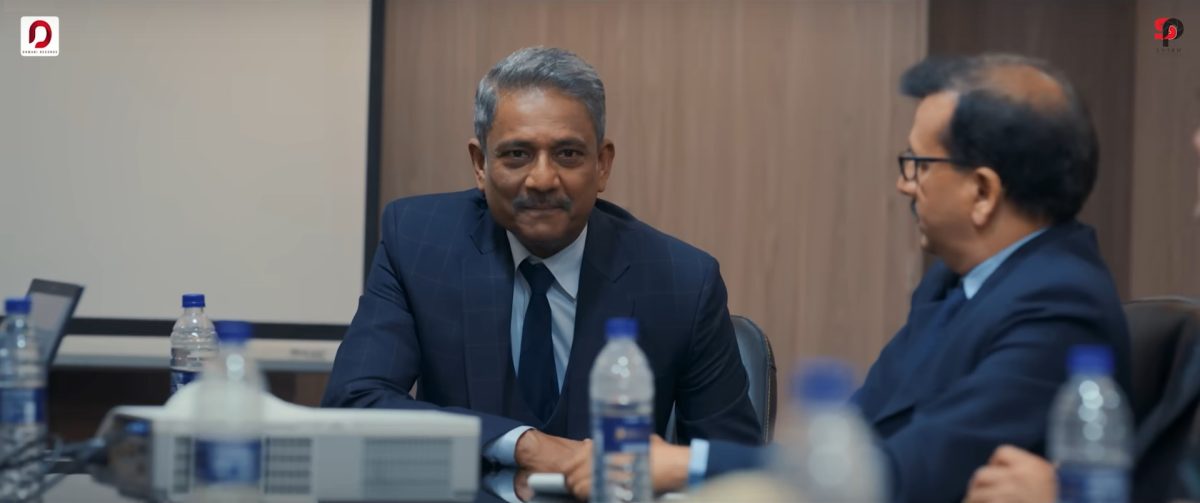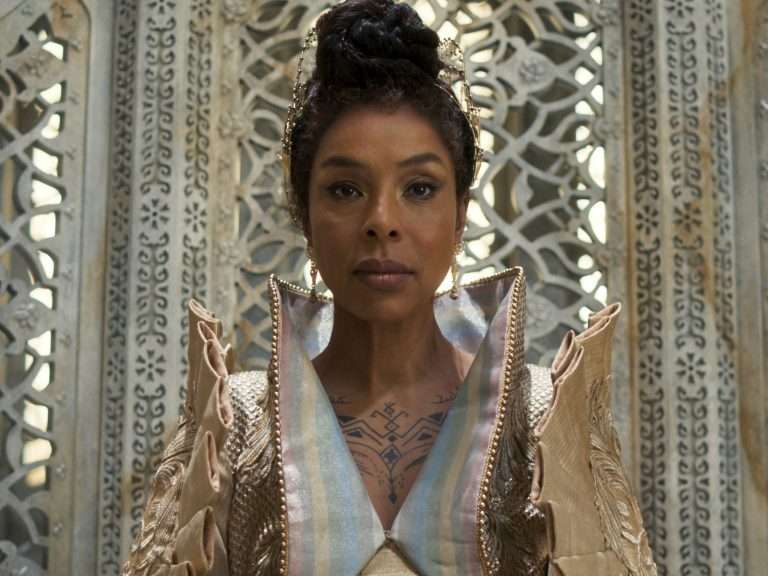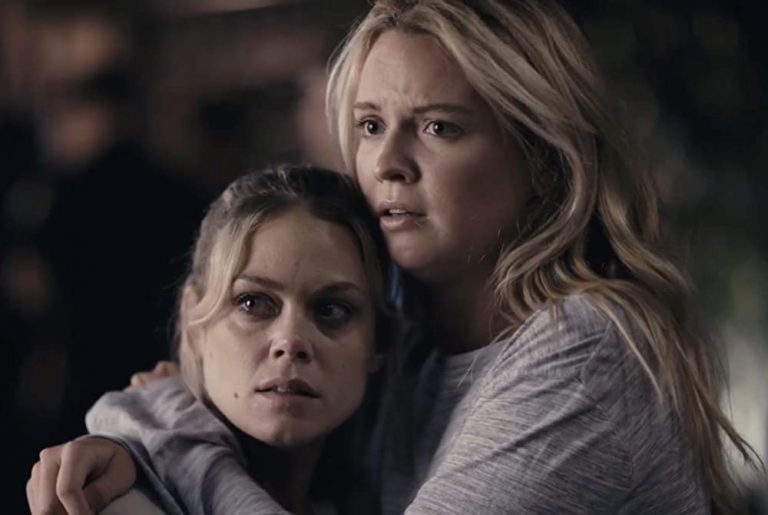After skipping its original theatrical release date of June 6, 2025, due to the overwhelming success of Sasanka Samir’s “Bhaimon Da,” popular actor Ravi Sarma’s new film, “Rudra,” finally hit theatres on June 27, 2025. It was released in as many as seventy-five cinema halls across Assam, along with a limited number of selected screens outside the state. Since then, the film has been performing very well and is currently in the fifth week of its theatrical run.
With a slick storyline that is not always the staple for Assamese cinema, filmmaker Roopak Gogoi tries to aim for a genre that goes against the populist aspirations of traditional content in Assamese cinema. Movies about spies, espionage, and terrorists have always operated in a niche corner under the belt of more popular forms of content in the cinemas of Assam. It’s a tricky subject and risky business, but the makers of “Rudra” seem to have found a way in between.
However, the viewers of the film seem to be divided on the quality and content of the film. While fans of the actor have appreciated the film, many in the audience have also found the film to be formulaic and shallow. Some audiences have appreciated the action sequences, while others have also criticized the use of AI and lack of creativity in the film.
In telling the story of a heartbroken agent of a secret government task force, Vajra, screenwriters Rudrajit Mazumder and Roopak Gogoi introduce actor Ravi Sarma’s undeterred calm and his ferocious nature side by side while splicing the temporality of the plot between the past and the present.

In the present, Ravi Sarma, who plays the titular Rudra, unfailingly makes an uncanny resemblance to the bearded and long-haired look of Salman Khan from “Kisi Ka Bhai Kisi Ki Jaan” (2023). He is the security supervisor of a shopping mall in Hyderabad, quietly focused on his duty, and back at his home, he is in charge of a few orphan kids for whom he also provides and deeply cares. This calm is also presented with a contrast of his past, a secret operative who doesn’t think twice before taking out a terrorist camp all alone by himself and daringly blowing it to pieces.
“Rudra” offers a somewhat satisfying embrace of both its genre and form—thanks in part to the enduring star power of Ravi Sarma—but a closer look reveals it as a bloated, chaotic action thriller that doesn’t quite hold together.
The film begins with a very important meeting where the home minister and the other political and administrative heads of the State urgently demand the elimination of all major threats for an upcoming event. Adil Hussain, portraying the head of the covert task force, steps forward to expose the root of the crisis—and takes full responsibility for its surgical resolution.
Enter the mission-ready Rudra, a covert operative armed with tactical gear and guns who burns up a terror hideout in no time to send a message to the enemy of the State. And that’s it. We never return to the home minister or the perspective of the State again, wherein it could have become an important party to the plot.
And in such absence of the State, the upward marching stakes of the threat feel wholeheartedly compromised because the urgency of the plot is lost, and hence its grip on the audience. Instead, “Rudra” takes a turn to become a personal story of the character embodied by Ravi Sarma. More than focusing on how the State chose to silence its enemies or the various sacrifices made to achieve it, the film ultimately centers on Rudra—how he was the chosen one and how he ended up as a softer version of himself in Hyderabad.
While national security and political stability recede into the background, the film shifts its focus to the emotional toll and burnout these missions inflict on the lives of special agents. Many years into the future, the impact of a tragedy continues to burn in the eyes of Rudra, who now maintains a low-key life with a wig amidst a few orphan children.
Although the nature of this tragedy and how it changed Rudra’s course of life, that he now spends his days in the shadows of his former identity, constitutes the bulk of the central storyline, the real grief is never felt. “Rudra” tries to transpire a fix by going back to the past and trying to build a bromance between Rudra and his colleague Sankalpa, portrayed by Joy Kashyap, and also bringing in a love story (with Nandinee Kashyap), but alas, it still fails to leave an impact.
Nandinee Kashyap, though much younger, delivers well in her role as Surabhi, making a convincing female lead, but the romance between them barely goes beyond a single song. The film presents a romance that simmers but never quite feels like love—largely because it doesn’t allow enough time for the leads’ connection to naturally evolve.
With an unintentional (?) impersonation of a ‘bhai’-coded persona in the characterisation of the lead actor, a love story staged in the click of a meet, the forcefully formulaic comedy segments that are reminiscent of South Indian films, where Rajiv Kro plays a stand-in for characters typically portrayed by Brahmanandam, Ali, Vadivelu, or M.S. Narayana, and an accented Adil Hussain, “Rudra” isn’t exactly boring to watch, but it remains thoroughly uninteresting throughout.
A worst trait of the writing is the death of the characters, imagined in the most unimaginative way possible. If the situation arises for someone to die, the writers just kill them off in a bomb blast. It’s so repetitive that after a few bomb blasts in the film, the thinking process of the writers just gives away. Rudra’s beloved has to die? Make it a tragic bomb blast. Some innocent children have to die? What can be more impactful than the good old bomb blast?

But the characters who face death are not the only casualties in the movie. At two and a half hours of runtime, the film also kills many precious minutes in the name of humour. It introduces characters simply for the sake of it. To give an example, Rudra, taking a short break from the force, visits the village of his colleague and friend. Along the way, he encounters a local villager who takes great interest in making himself heard. He is introduced with significance but disappears soon after.
That plot shift to a village environment surely works as a visual break and comes off as a relaxing measure to the dullness of the plot that spends too much time among rebels and suit-clad men in offices, but the filmmakers still fail to take advantage of the situation. There were several ways the storytelling could have been made more effective.
For instance, the film could have withheld Rudra’s action-packed past for a later reveal, building a sense of uneasy suspense around his quiet, enigmatic presence in the first half, as a seemingly ordinary mall security manager who keeps to himself. Who is he, really? Why is he so withdrawn? And more importantly, was he the one who secretly defused the bomb planted by terrorists? This approach might have generated greater intrigue and sustained interest in the plot.
The film also struggles to achieve an emotional connection between Rudra’s grief and his final closure, as it mechanically moves from one to the other, as is the case with its bot-driven-like screenplay. The weak and flawed foundational core of the love story between the two lead pair earlier in the film is again the reason why the revenge came off as cold. It was sad in parts, but the overall feel of a tragedy was missing in the film. In other words, it’s sad but not tragic enough.
Ravi Sarma is a great action hero, as we have witnessed earlier in Suvrat Kakoti’s “Sri Raghupati (2023), which is also one of the top-grossing Assamese movies of recent times. And in terms of the action sequences, “Rudra” also gives him the scope. But his strength alone isn’t enough to keep the cart from rolling back. The narrative strength that “Sri Raghupati” owed to Suvrat Kakoti’s assured direction was notably absent in “Rudra.”




![Always Be My Maybe Netflix [2019] Review: A Comedic Treat with a Racial Flair](https://79468c92.delivery.rocketcdn.me/wp-content/uploads/2019/06/Always-Be-My-Maybe-2-768x432.jpg)

